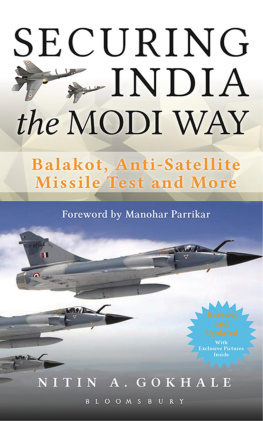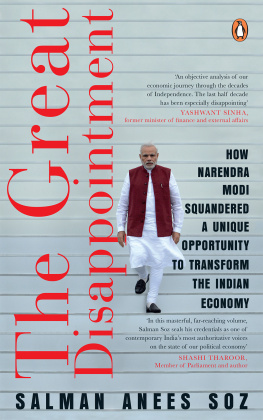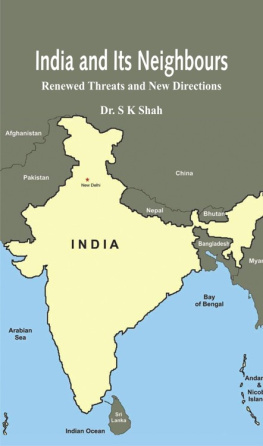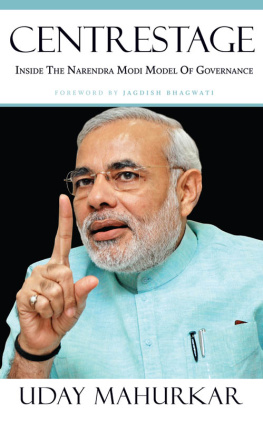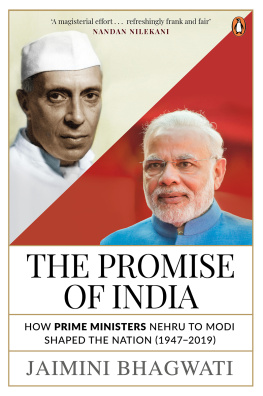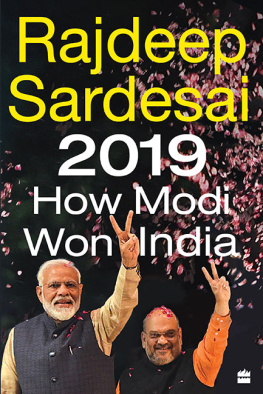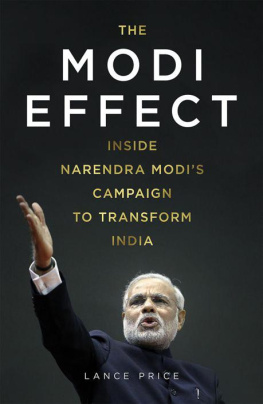Table of Contents

SECURING
INDIA
the MODI WAY
SECURING
INDIA
the MODI WAY
Balakot, Anti-Satellite
Missile Test and More
NITIN A. GOKHALE

BLOOMSBURY INDIA
Bloomsbury Publishing India Pvt. Ltd
Second Floor, LSC Building No. 4, DDA Complex, Pocket C 6 & 7,
Vasant Kunj New Delhi 110070
BLOOMSBURY, BLOOMSBURY PRIME and the Diana logo are trademarks of
Bloomsbury Publishing Plc
First published 2017
Revised and updated version 2019
Copyright Nitin A. Gokhale, 2019
Nitin A. Gokhale has asserted his right under the Indian Copyright Act to be identified as Author of this work
All rights reserved. No part of this publication may be reproduced or transmitted in any form or by any means, electronic or mechanical, including photocopying, recording, or any information storage or retrieval system, without prior permission in writing from the publishers
Bloomsbury Publishing Plc does not have any control over, or responsibility for, any third-party websites referred to or in this book. All internet addresses given in this book were correct at the time of going to press. The author and publisher regret any inconvenience caused if addresses have changed or sites have ceased to exist, but can accept no responsibility for any such changes
ISBN: 978-93-89449-27-3
2 4 6 8 10 9 7 5 3 1
Created by Manipal Digital Systems
Bloomsbury Publishing Plc makes every effort to ensure that the papers used in the manufacture of our books are natural, recyclable products made from wood grown in well-managed forests. Our manufacturing processes conform to the environmental regulations of the country of origin.
To find out more about our authors and books visit www.bloomsbury.com
and sign up for our newsletters
Contents

MANOHAR PARRIKAR
CHIEF MINISTER, GOA

This book by Nitin Gokhale focuses on Prime Minister Shri Narendra Modis national security policies and some of the steps he has taken to improve Indias strategic and national security position.
The Prime Ministers decision to personally reach out to the world and re-energise Indias foreign policy approach is by now well known. Indias rising global stature is a result of his vision and his governments initiatives. This book documents in detail some of the fundamental changes that are being ushered in by the Prime Minister, his governments efforts to strengthen our military, and the role of our armed forces and intelligence agencies in making India secure.
I have personally benefitted from Gokhales insights and his long experience as a journalist covering matters of national security. I am confident that this book, written using simple and easy to understand language, will be useful to both military enthusiasts and common citizens alike.

Panaji
Manohar Parrikar
September 2017
One of the challenges that writers on contemporary issues face is to get the full picture immediately after the events have taken place. And so it has been with me in revising and updating this book. I had a similar experience when I wrote the first edition in 2017. It was released exactly a month after the resolution of the Dolam (Doklam) crisis between India and China was announced.
I just had a week to piece together the story of how one of the most serious border standoffs between the two Asian neighbours in recent years was resolved. Naturally, it was not possible to get all behind-the-scene details of the delicate diplomacy, hard negotiations and the decision-making at the highest level that went into the de-escalation, either because the main protagonists were out of my reach or were unwilling to speak because of the sensitive posts they held. And yet, as an observer of current affairs and author, I thought I had enough material to write an authentic account of how the solution to the Dolam faceoff was found. The book of course had many other insights about the decision-making process on national security matters under Prime Minister Narendra Modi.
In two years since the first edition was released in September 2017, many more significant actions have taken place in the national security space to be ignored. The killing of 40 plus troopers of the Central Reserve Police Force at Pulwama in Jammu and Kashmir on 14 February 2019 and its fallout for instance. When a Jaish-e-Mohammad (JeM) inspired and trained suicide bomber rammed his vehicle into the CRPF convoy, he set off a chain of events that has led to redrawing of several redlines and altered equations not just between India and Pakistan but also forced a rethinkat least on some countsin the approach of Pakistans all-weather ally China towards Islamabads policies of supporting terror groups.
As we now know, in February 2019, Indian war planes struck a JeM terror camp at Balakot in the Khyber Pakhtunkhwa province inside Pakistan (not Pakistan-occupied Jammu & Kashmir, which technically is Indian territory). By deciding to go where no Indian government had dared to go in 48 years after the 1971 war, the Modi government set a new template in tackling terror emanating from Pakistan and has surely forced a rethink in Pakistans strategy of pursuing a proxy war in J&K, if not completely stopped it.
The Balakot strike and the subsequent support India received globally for its action taken in self-defence, also compelled China to change its decade-old stand on terror and Pakistan. After the Pulwama terror attack, other permanent members of the UN Security Council, led by the US, UK and France had pursued JeM founder Masood Azhars listing, first issuing a UNSC statement specifically condemning JeM followed by a proposal to designate Azhar as a terrorist at the UNSC 1267 Sanctions Committee. After China placed yet another hold on the designation in mid-March 2019as it had done since 2008the three countries advocated a tougher line, threatening China with bringing the proposal to the full UN Security Council.
Nifty diplomacy and Indias enhanced status internationally coupled with realisation that supporting Pakistan blindly and shielding Azhar was giving diminishing returns, forced Beijing to finally agree to designate Azhar as an international terrorist.
So the decision-making process leading to the Balakot strike, the meticulous planning by the IAF on the back of real time intelligence inputs from the ground, the daring and professionalism of air force pilots, the subsequent air battle, the capture of Wing Commander Abhinandan that led to an unprecedented tension between India and Pakistan, all form a major part of this revised and updated edition.
The Modi government also took a giant step in ordering the testing of an anti-satellite missile, pre-empting any attempt to keep India out of future rule-making regime on space matters. I have updated the chapter on Middle East (or West Asia as we call it in India) since two important developments needed to be taken note of: One, Indias presence at the plenary of the Organisation of Islamic Cooperation (OIC) as guest of honour and two, the increased security cooperation between India and the Gulf countries leading to extradition of Christian Michel James, perhaps the first White British National in history to be extradited to a non-European country, and many more fugitives.

